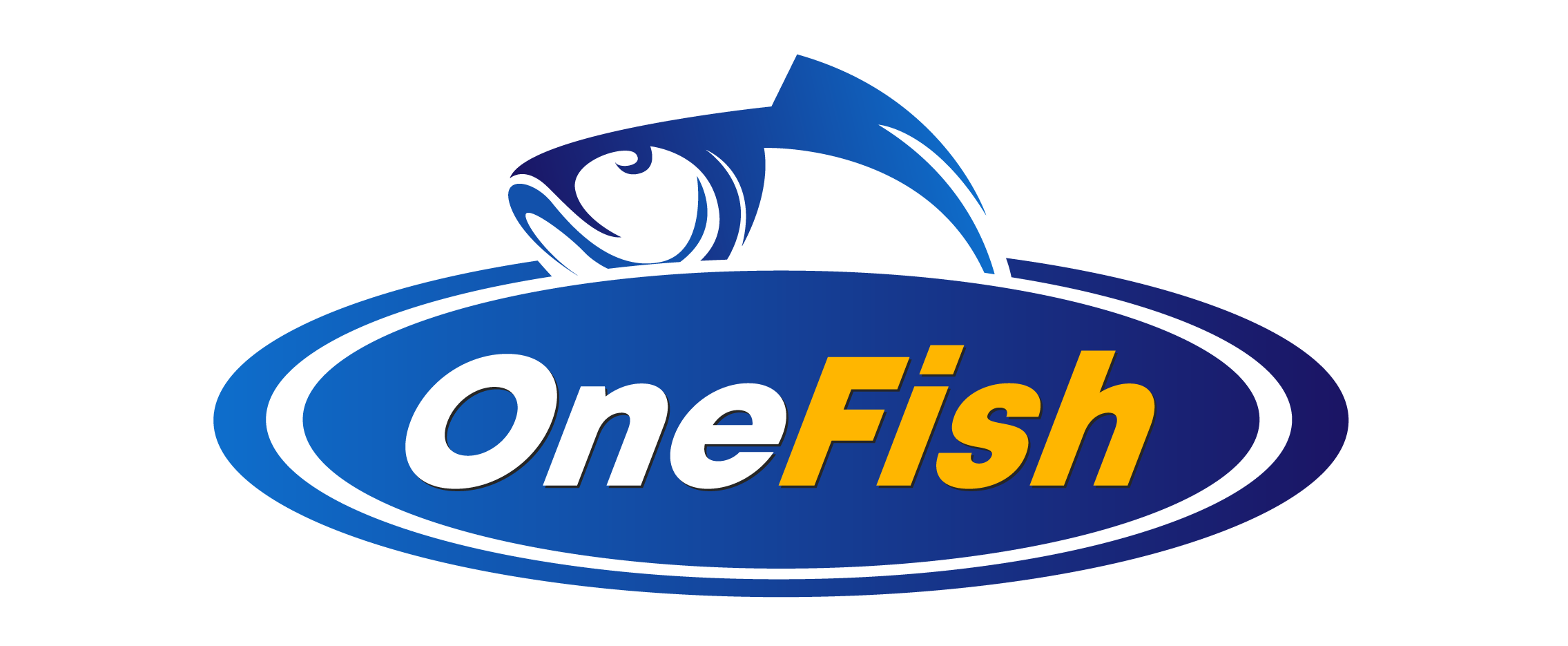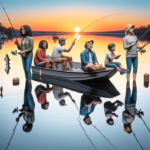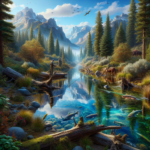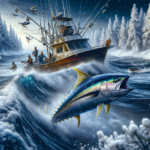Fishing in the San Juan River: Colorado and New Mexico Waters
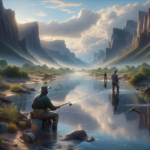
Introduction
Did you know that the San Juan River is one of the premier fly fishing destinations in the United States, attracting anglers from all over the world? This article will delve into the intricacies of fishing in the San Juan River, covering both the Colorado and New Mexico waters. We will explore the best fishing techniques, the species you can expect to catch, top fishing spots, and much more. Whether you’re a seasoned angler or a novice, this guide will provide valuable insights to enhance your fishing experience.
Fishing in the San Juan River matters because it offers a unique blend of challenging and rewarding fishing opportunities. The river is renowned for its large trout population, making it a must-visit for any serious angler. Understanding the nuances of fishing in this river can significantly improve your chances of a successful and enjoyable trip.
Background/Context
Historical or Cultural Significance
The San Juan River has a rich history that dates back to the Native American tribes who first inhabited the region. The river has long been a source of sustenance and cultural significance. In more recent history, the San Juan River has gained fame among the angling community for its abundant and sizable trout population, particularly in the tailwater section below Navajo Dam in New Mexico.
Geographical Overview
The San Juan River originates in the San Juan Mountains of Colorado and flows through New Mexico before joining the Colorado River. The river’s ecosystem is diverse, featuring a mix of cold and warm water habitats. The climate varies from alpine conditions in Colorado to arid desert landscapes in New Mexico, offering a range of fishing environments.
Key Points/Details
Fishing Techniques
Technique Overview
The primary fishing technique used on the San Juan River is fly fishing, particularly nymphing. Dry fly fishing and streamer fishing are also popular, depending on the season and water conditions.
When and Where to Use
Nymphing is most effective in the tailwater section below Navajo Dam, where the water is clear and cold year-round. Dry fly fishing is best during the summer months when insect hatches are most prolific. Streamer fishing can be effective in deeper pools and during low-light conditions.
Recommended Gear
- Rods: 9-foot, 5-weight fly rod for nymphing and dry fly fishing; 6-weight rod for streamer fishing.
- Reels: Quality fly reel with a smooth drag system.
- Lines: Floating fly line for nymphing and dry fly fishing; sink-tip line for streamer fishing.
- Bait/Lures: Nymphs (e.g., Pheasant Tail, Zebra Midge), dry flies (e.g., Adams, Elk Hair Caddis), and streamers (e.g., Woolly Bugger).
Species Information
Species Overview
The San Juan River is home to several species of trout, including Rainbow Trout and Brown Trout. These fish are known for their size and fighting ability, making them a prized catch for anglers.
Best Practices
To successfully catch trout in the San Juan River, focus on matching the hatch and using appropriate fly patterns. Pay attention to water conditions and adjust your techniques accordingly. Early morning and late evening are often the best times to fish.
Location Information
Top Fishing Spots
- Navajo Dam Tailwater: Known for its large trout population and clear waters, this is the most popular fishing spot on the San Juan River.
- Quality Waters: A 4.25-mile stretch below Navajo Dam that is designated as Quality Waters, offering some of the best trout fishing in the country.
- Pagosa Springs: Located in Colorado, this area offers excellent fishing opportunities in a more alpine setting.
Regulations and Licenses
Fishing regulations vary between Colorado and New Mexico. In New Mexico, anglers need a valid fishing license and a special trout permit for the Quality Waters section. Catch and release is encouraged, and there are specific regulations regarding bait and tackle. Always check the latest regulations before your trip.
Seasonal Considerations
Seasonal Variations
Fishing conditions on the San Juan River change throughout the year. Spring and fall offer excellent fishing with moderate temperatures and active fish. Summer can be productive, especially during insect hatches, but be prepared for higher water temperatures. Winter fishing is possible, particularly in the tailwater section, but can be challenging due to cold weather.
Best Times to Fish
The best times to fish the San Juan River are during the spring and fall when water conditions are optimal, and fish are most active. Early morning and late evening are generally the best times of day to fish.
Events and Tournaments
Event Overview
The San Juan River hosts several fishing events and tournaments throughout the year, including the annual San Juan River Fly Fishing Tournament. These events attract anglers from all over and offer a chance to compete and learn from others.
Preparation Tips
To prepare for a fishing tournament on the San Juan River, practice your casting and familiarize yourself with the river’s conditions. Make sure your gear is in top condition and bring a variety of flies to match the hatch. Study past tournament results to understand what techniques and locations have been successful.
Tips and Best Practices
General Tips
- Always match the hatch by observing the insects present and using similar fly patterns.
- Practice catch and release to help maintain the river’s fish population.
- Pay attention to water conditions and adjust your techniques accordingly.
Avoid Common Mistakes
- Don’t use overly heavy tippet; trout in the San Juan River can be line-shy.
- Avoid fishing during the hottest part of the day in summer; fish are less active.
- Don’t ignore local regulations; always check for updates before your trip.
Advanced Techniques
- Use a double nymph rig to increase your chances of catching fish.
- Try Euro nymphing techniques for more precise presentations.
- Experiment with different streamer retrieves to find what triggers strikes.
Gear and Equipment Recommendations
Essential Gear
- 9-foot, 5-weight fly rod
- Quality fly reel with smooth drag
- Floating fly line
- Variety of nymphs, dry flies, and streamers
- Waders and wading boots
Optional Gear/Upgrades
- Sink-tip fly line for streamer fishing
- Polarized sunglasses for better visibility
- Fly fishing vest or pack for easy access to gear
Where to Buy or Rent
Local fly shops in Durango, Colorado, and Farmington, New Mexico, offer a range of gear and equipment for purchase or rent. Online retailers like Orvis and Cabela’s also provide a wide selection of fly fishing gear.
Safety and Conservation
Safety Tips
- Always check weather conditions before heading out.
- Wear a life jacket when fishing from a boat.
- Be aware of wildlife, including snakes and bears, especially in remote areas.
Conservation Practices
- Practice catch and release to help maintain fish populations.
- Respect local wildlife and avoid disturbing their habitats.
- Follow all fishing regulations and guidelines.
Planning Your Trip
Accommodations
There are several lodging options near the San Juan River, including hotels, motels, and campgrounds. Popular choices include the Abe’s Motel & Fly Shop in Navajo Dam, New Mexico, and various accommodations in Durango, Colorado.
Travel Tips
The San Juan River is accessible by car from major cities like Albuquerque, New Mexico, and Denver, Colorado. The nearest airports are Durango-La Plata County Airport (DRO) and Albuquerque International Sunport (ABQ). Renting a car is recommended for easy access to fishing spots.
Additional Activities
In addition to fishing, the San Juan River area offers hiking, rafting, and sightseeing opportunities. Visit the nearby Mesa Verde National Park or take a scenic drive through the San Juan Mountains.
Frequently Asked Questions (FAQs)
What is the best time of year to fish the San Juan River?
The best times to fish are during the spring and fall when water conditions are optimal, and fish are most active.
Do I need a special permit to fish the Quality Waters section?
Yes, in addition to a valid fishing license, you will need a special trout permit to fish the Quality Waters section below Navajo Dam in New Mexico.
What types of flies work best on the San Juan River?
Nymphs like Pheasant Tail and Zebra Midge, dry flies like Adams and Elk Hair Caddis, and streamers like Woolly Bugger are all effective.
Conclusion
Fishing in the San Juan River offers a unique and rewarding experience for anglers of all skill levels. From its rich history and diverse ecosystem to its renowned trout population, the river provides endless opportunities for adventure. By understanding the best techniques, gear, and locations, you can make the most of your fishing trip. So pack your gear, check the regulations, and get ready to explore one of the best fishing destinations in the United States.
Whether you’re aiming to catch a trophy trout or simply enjoy the serene beauty of the river, the San Juan River has something to offer. Happy fishing!
